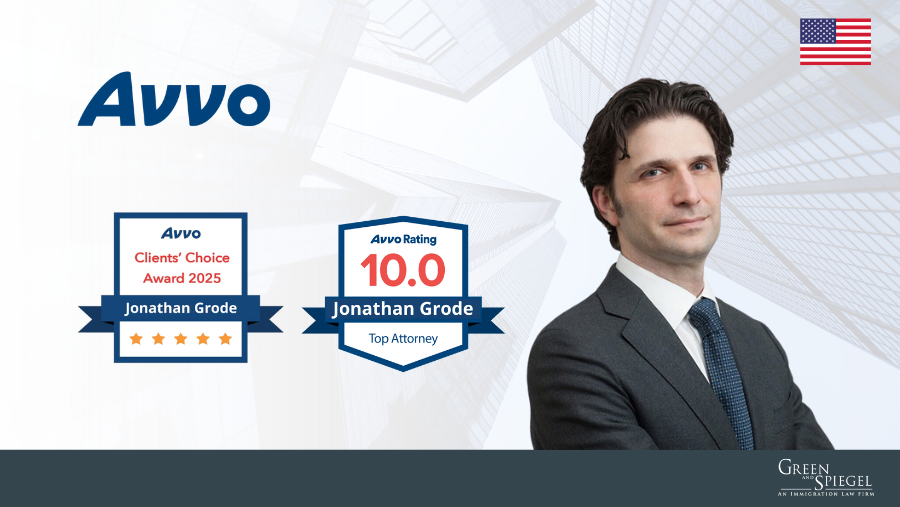KEY POINTS:
- The Construction Industry Employee Verification Act (“Construction E-Verify”) applies to manufacturers of construction materials and equipment, who may not realize it applies to them.
- State and federal law bars employing foreign nationals without authorization to work. Those laws are increasingly being enforced.
- Construction E-Verify became effective this week and the window for bringing companies into compliance with federal and state law is likely to be short.
- It is in our best interest to: 1) get a legal determination of whether our businesses are subject to Construction E-Verify or not; 2) conduct a discreet internal audit; and 3) apply one of the proven remedies to get things in legal order.
INTRODUCTION: Pennsylvania requires manufacturers of construction materials and equipment to verify employment authorization through the federal E-Verify system.
Construction E-Verify became effective yesterday. “Construction industry” businesses are now required to use the E-Verify system, in conjunction with the Form I-9, Employment Eligibility Verification (“Form I-9”) process, to onboard employees. For affected companies, this applies to everyone hired on or after Tuesday, October 6, 2020.
Of greater concern than Pennsylvania’s Construction E-Verify enforcement may be the inspections and investigations opportunities presented to U.S. Immigration and Customs Enforcement (ICE), since they are now in the position to target companies which are required to register with E-Verify but have failed to do so. Not registering with E-Verify invites the assumption that a company is skirting the law. As it is a simple task for ICE to compare a list of companies which are required to register with E-Verify with a list of those which have done so, failing to comply may make a company an attractive enforcement target.
There is a two-fold remedy: 1) “construction industry” companies should adapt onboarding to include E-Verify and 2) employers should audit their Form I-9s and take appropriate corrective actions.
Manufacturers subject to the law may not know that they are now “construction industry” businesses.
The Construction E-Verify definition of “construction industry” is broader than most of us imagine:
“Construction industry.” The industry which engages in the erection, reconstruction, demolition, alteration, modification, custom fabrication, building, assembling, site preparation and repair work or maintenance work done on real property or premises under a contract, including work for a public body or work paid for from public funds.[1]
The definition brings employers which don’t think of themselves as “construction companies” into the scope of enforcement. Under the Act manufacturers of construction equipment and materials may be required to use E-Verify and may receive Form I-9 enforcement attention. It is important that companies determine whether they are subject to Construction E-Verify. It may be helpful to have a written legal opinion on hand if the government disputes that determination.
Pennsylvania’s Construction E-Verify Act changes the enforcement picture.
An “unauthorized worker” is a person without permission to be employed here. These are foreign nationals “not at that time [employed in the U.S.] either (A) an alien lawfully admitted for permanent residence, or (B) authorized to be so employed…”[2]From a practical management perspective, the effect of the definition is that employers are legally required to verify identity and work authorization at time of hire and to document this on a Form I-9. With Construction E-Verify, “construction industry” employers must also use the federal government’s E-Verify system, in tandem with the Form I-9 system, to establish work authorization.
This changes the compliance and enforcement picture for Pennsylvania employers. In addition to the oversight in place prior to Construction E-Verify:
- Three-Prong Worksite Enforcement Strategy: Immigration and Customs Enforcement (1) enrolls companies in programs designed to discourage unauthorized employment (like E-Verify); (2) conducts Form I-9 inspections and levies civil fines; and (3) conducts criminal arrests of employers and administrative arrests of unauthorized workers;
- Social Security No Match Letters: The Social Security Administration (SSA) issues “Employer Correction Request Notices” (“No Match Letters”) notifying employers of Form W-2 wage and tax statements and SSA records mismatches; and
- Immigrant and Employee Rights Section Enforcement: The U.S. Department of Justice (DOJ)aggressively pursues employers who are too aggressive in complying with the requirement that they employ only authorized workers.
The PA Department of Labor & Industry (DLI) now has the power to:
1) Enter and inspect the place of business or place of employment of any employer of employees in any occupation in this Commonwealth at any reasonable time for the purpose of examining and inspecting records of the employer that in any way relate to compliance with this act.
(2) Copy any or all records as the department may deem necessary or appropriate.
(3) Require from an employer full and accurate statements in writing, at such times as the department may deem necessary, of the work authorization verification process for all employees in the employer’s employment.
(4) Interrogate persons for the purpose of ascertaining whether an employer has complied with this act.[3]
Disgruntled employees, meddling agencies and public, and even competitors can lodge anonymous complaints with local, state, or federal authorities which can lead to enforcement actions. For example, two of the companies my firm is helping with Form I-9 defense appear to have been the subjects of “anonymous” tips by competitors that had been targeted for the same enforcement the year before.
The bottom line is that there is too much enforcement infrastructure, at too many levels of government, to continue employing unauthorized workers or to treat lightly the administrative tools necessary to demonstrate compliance.
CONCLUSION: For Pennsylvania’s “construction industry” companies, it may be necessary to review employee records and onboarding practices to ensure that they are consistent with current federal employment requirements.
For some companies, employing only authorized workers would be ruinous. For others, onboarding and employment policies and procedures are sufficiently robust that a quick review to make sure that everything is in order and that, if required to use E-Verify, personnel teams incorporate that requirement into the process, may be sufficient. For those for whom hiring and retention have been challenging and the employment policies and procedures haven’t kept pace with other company functions, the review and remedy will require more.
These companies are the most vulnerable to tips and complaints to authorities which initiate costly enforcement actions. Risks can be minimized by obtaining a discreet professional legal assessment. If everything is in order, this provides peace of mind. If not, the company is in the best place to apply remedies on their own terms, rather than being abruptly forced to act under government oversight.
Green and Spiegel’s Compliance and Regulatory Enforcement Practice is specifically designed to address enforcement matters like this for business clients. We are experienced and knowledgeable management partners, uniquely positioned to help companies avoid regulatory problems and to defend employers if enforcement actions are initiated.
Please drop us a line if we can be of any assistance. Our office number is (215)395-8959, we can be reached via web.
David Spaulding is a compliance and regulatory counsel attorney with twenty-three years of civil service experience prior to joining Green and Spiegel. He brings substantial management and investigation experience to his work and is uniquely positioned to assist employers with compliance issues rising from immigration enforcement actions. He can be reached via cell phone (484-645-4194) or email at dspaulding@gands-us.com .
DISCLAIMER: Please note, nothing posted here is legal advice, nor does reading anything here or communicating with the writer on or through social media form an attorney/client relationship. Choosing an attorney is a serious matter and should not be based solely or primarily on advertising or any other public communication of an attorney or law firm.
[1]§2. Definitions at https://www.legis.state.pa.us/cfdocs/legis/li/uconsCheck.cfm?yr=2019&sessInd=0&act=75
[2]8 U.S.C. § 1324a(h)(3)




